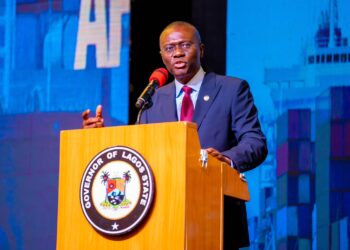The combined effect of the rapid quest for property, increasing demand for provision of urban and rural infrastructures, and the dwindling federal revenue allocations seemed to have influenced the Lagos State Government to enact the Land Use Charge Law (2001) to increase internally-generated revenues through property tax.
The 2001 Law provided new formulae and technique for assessing the Charge payable on properties in Lagos state, amongst other provisions; and consolidated and replaced all the state and local
government taxes payable on property.
On 29th January 2018, the Lagos State House of Assembly, passed the Land Use Charge Law, 2018 (LUCL) with the Governor’s assent. The LUCL, 2018 replaces the Land Use Charge Law, No. 11 of 2001. The LUCL 2018, applies to real and landed property in Lagos State, and consolidates all property and land-based rates/charges into a single property charge. The current Law as it is, sets the modalities for levying and collection of land use charge in Lagos State.
The formula adopted for land use charge is now based on the commercial value of the property, which valuation will now be based on assessment by professional Estate Valuers appointed by the state; and which valuation will continue to be updated on five
yearly basis.
In essence, the major change in the current Law is the introduction of a land use charge formulae that ensure that assessments are based on ‘market’ or commercial value of land and improvements as supported or verified by professional evidence of the Estate Valuers appointed by the State.
The Land Use Charge payable on any property is calculated by multiplying the market value of the property by the applicable relief rate and annual charge rate using the prescribed formulae.
THE INTENTION
The intention of the Legislators for the enactment of this legislation are:
a. Simplifying the process/procedure for assessment and payment of property tax
b. Generating additional revenue for the State through effective assessment and
enforcement.
RELEVANT PROVISIONS UNDER THE NEW LAW
It is important that attention is paid to these relevant provisions which seem to be the fulcrum of this legislation:
- Each local government area in the State has been given powers under the new law to
be collecting authority for land use charge. Such local government will under the new
law be the only body empowered to levy and collect the land use charge areas within
its specified jurisdiction. - Land use charge is payable on ALL property except those exempted under Section 12
of the new Land Use Charge Law, 2018 (LUCL).
THE EXEMPTIONS
The exemptions include:
(a) Property owned and occupied by a religious body and used exclusively as a place
of worship or religious education;
(b) Public cemeteries and burial grounds as well as property used as a registered
educational institution certified by the Commissioner of Finance (the
Commissioner) to be non-profit making;
(c) Palaces of recognized traditional rulers in the State; and
(d) Any property specifically exempted by the Executive Governor by notice published in the State Official Gazette.
EXCEPTIONS TO THE EXEMPTIONS
- It is however very important to bear in mind that the fact a property has been marked as exempt does not mean that it will remain exempt indefinitely.
- An exempted property becomes subject to land use charge if the use of such property changes to one that does not qualify for an exemption.
- Also, the use of word ‘cemetery’ in (b) above is now limited to only public cemeteries under the new law, meaning that owners of private cemeteries will now be expected to pay LUC; while private libraries will continue to be exempt under the new law in
addition to public libraries (on a condition that they must be certified to be non-profit making by the Commissioner of Finance for Lagos State). - In addition, the exemption for property owned by religious bodies has been limited to
those used as a place of worship or for religious education. - Where any exempt property is leased out to private entities for revenue generation,
they shall not be exempt for purposes of the law. This may also include stadiums and/or religious centres that are also used as event centres or receptions for a fee.
However, the LUC imposed shall be only be calculated to make it only apply to that part of the year in which the property, or part of it, is not exempt.
LIABILITIES
- The ‘owner’ of the property has the duty to inform the Commissioner of the loss of exempt status or risk a penalty of up to 3 times the exemption in issue.
- Under the new law, persons liable to pay LUC have been extended to include occupiers holding long leases of 10 years and above. This, on the other hand, excludes tenants with short leases.
- The term ‘Occupier’ has also been defined in the new legislation to include persons unlawfully occupying a property.
PENALTY
The penalty for non-compliance with provisions of the law has been increased to a maximum fine of Two Hundred and Fifty Thousand Naira (=N=250,000), from One Hundred Thousand Naira (=N=100,000) as provided in the 2001 Legislation.
ENFORCEMENT
The law has now reduced the number of the tribunal from 15 to 9 and gives the tribunal the power to adopt decisions obtained through Alternative Dispute Resolution (ADR).
Where the mediation does not resolve the dispute within 45 working days of the first session or when the mediator declares a deadlock, the mediation shall be deemed inconclusive and parties shall be at liberty to resolve their dispute formally at theTribunal or through the Courts.
In addition to rights to criminal enforcement, the new legislation has also extended the enforcement rights of the State to include a civil action against the owner to recover the accrued LUC.
CONCLUSION
The new LUCL 2018 should be lauded as it reflects the State Government’s efforts to tackle the issue of multiplicity of property taxes and levies between the State and Local Governments. This is because (by deductive implication) the imposition of land use charge on a landed property means that all other legislation that imposes tax on properties would cease to apply to relevant landed property.























Please can I have a copy of the new Land use charge Law 2018? Thank you.
”Observations
Basing the Annual Land Use Charge Rate on the Market Value of a Property is an inequitable form of Taxation as the Owner of the Property is not as a matter of fact, receiving the market value of the property on an annual basis. ” https://www.proshareng.com/news/Property%20&%20Real%20Estate/The-New-Land-Use-Charge-Law-of-Lagos-State/38652
It is an intelligent move which should be effective. However, is the law specific on how the local and state governments share the income generated (if it is to be shared)? Like Ike noted, there are properties built many years ago in previously obscure locations that have now become ‘highbrow’. The owners of such properties, where it is owner-occupied, may not have the wherewithal to pay what is assessed. Since the identities of owners are known, I would have advised that the declared income of such owners be factored into the calculation. A multiplier can be established for ranges of income.
Thank you for the enlightenment. Not against the consolidation of taxes/levies and the need to generate revenue to finance government expenditure/budgeting.
However, the clime that existed in 2001 is totally different from what obtains today. Lagos state was starved of federal allocation in 2001, and the government, through a bi election sought for the people buy-in on ways of generating revenue to finance her budget. We should not also forget that the Local government councils had bastardized the operation and management of the tenement rate collection and administration, hence the move was a welcome idea in 2001.
As at today, the situation is totally different. The government did not also seek for the concurrence of the citizen.
As a professional Esate Surveyor and valuer, in the housing finance sector, levying the rate on capital value is faulty, and against the canon of rating/taxation. The annual reteable value is a product of rent (preferably open market rent, but could be rent fixed by control), less annual running expenses for repairs and maintenance of the property to earn that annual rent, multiplied by the rate Nairage. Where a property does not earn income, it follows that it is not rateable, but under the current law, rate/tax is payable even if the property is vacant.
Equitably, the owner does not receive the capital value annually, hence amount to injustice for him to pay based on what is not earned. It is this principle that makes PAYE distinct, acceptable and defensible.
Lastly (for now), what is the position of senior citizens who are owner occupier?
Thank you